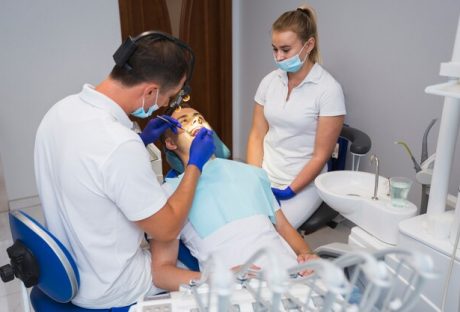As a dental practice owner, you undoubtedly know how important having a solid, reliable data analytics system is. After all, there’s no denying that having access to the right data can make a world of difference in terms of the overall success of your business. But with so many metrics to track and so much data to sort through, it can take a lot of work to know where to start.
In this blog post, we’ll take a closer look at some key ways you can use practice analytics to improve your dental practice. From creating actionable insights to tracking important metrics like patient satisfaction and retention rates, we’ll cover everything you need to know to get the most out of your data analytics platform.
Analyze Patient Demographics
The first step to using practice analytics is understanding your patient demographics. Your dental billing software and practice management system can help curate this information. You can develop a more personalized approach to patient interactions, marketing, and care plans. For instance, if most of your patients come from a particular age group or area, you can tailor your communication and services accordingly. With this information, you can identify gaps in your care plans, such as a lack of services that would benefit a specific age group, and implement measures to address them.
Determine Your Key Performance Indicators (KPIs)
The first step in using practice analytics is determining which metrics to track. These metrics, also known as key performance indicators (KPIs), can help you measure the success of your practice and identify areas where you may need to make changes. KPIs can vary from practice to practice, but some common ones include new patient acquisition, patient retention rate, and revenue per patient. Once you’ve identified your KPIs, you must track them regularly and use the data to make informed decisions.
Use Data To Identify Opportunities For Improvement
Once you can access your KPIs, it’s time to analyze the data. Look for trends and patterns that may indicate areas where you can improve. For example, if your new patient acquisition rate is low, you may need to invest more in marketing and advertising. If your revenue per patient is declining, consider offering additional services or adjusting your pricing. By using data to identify opportunities for improvement, you can make strategic decisions that will benefit your practice and your patients.
Enhance Marketing Efforts
Practice analytics can provide valuable data on demographics, referral sources, and social media interactions, which can help you refine your marketing strategies. By analyzing this data, you can determine which marketing campaigns are most effective, which referral sources generate the most business, and which social media platforms garner the most engagement. This will allow you to create targeted marketing campaigns that deliver better results.
Improve Patient Outcomes
Analyzing patient data can help you improve patient outcomes and experience. You can identify patterns or issues by tracking patient satisfaction rates, procedure success rates, and treatment outcomes and take corrective action as necessary. Investing in patient-reported outcome measures (PROMs) can provide valuable insights into how your patients perceive their health and treatment outcomes. By analyzing this information, you can identify strengths and weaknesses in your practice and create data-driven strategies for improvement.
Evaluate Your Administrative Processes
One way to utilize practice analytics is to evaluate administrative processes, such as appointment scheduling and staff communication. For example, data provided by practice analytics software can reveal patterns such as last-minute cancellations and no-shows, which negatively impact your practice’s bottom line. Reviewing this information, you can alter scheduling practices, such as adopting a ‘same-day cancellation’ policy or implementing appointment reminders to increase appointment show rates. Similarly, analyzing your staff’s effectiveness, such as how long they stay on call with patients and how effectively they answer patients’ questions, can also help identify areas where training would benefit your practice.
Collaborate With Support Teams
Lastly, if you need more confidence in analyzing or making decisions based on practice analytics, consider outsourcing to third-party advisors with experience in your field and software expertise. For instance, there are dental analytics companies that can provide you with insight into industry performance treatment trends and offer benchmarking tools that you can use to compare your practice’s success rate to others. Some companies can also provide customized recommendations based on your performance data and help you develop an improvement plan.
Conclusion:
In conclusion, practice analytics can help you make informed decisions about improving your dental practice. By tracking Key Performance Indicators, improving Patient Outcomes, analyzing Patient Demographics, monitoring financial metrics, and using practice management software, you can identify areas for improvement and make data-driven decisions that will take your business to the next level. Whether you’re a new dental practice owner or have been in business for years, it’s always possible to use practice analytics to improve your practice and provide the best possible patient care.
Read Also:






















